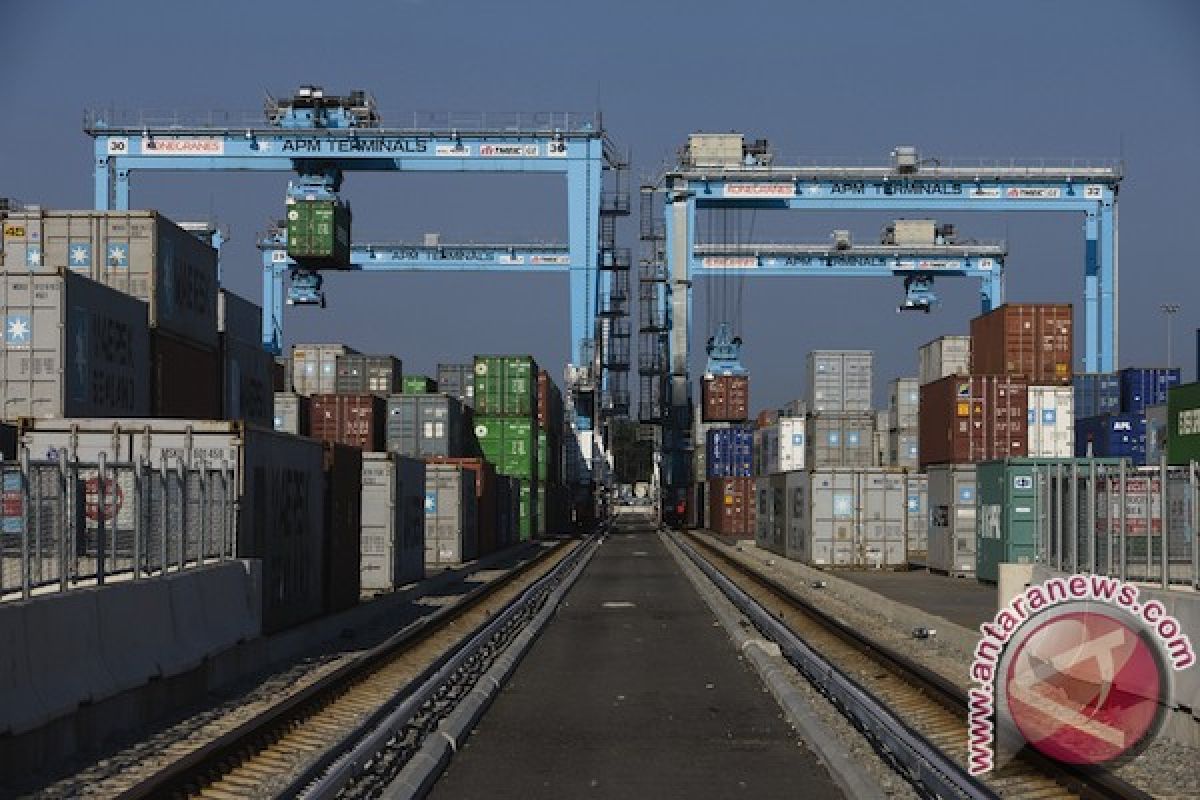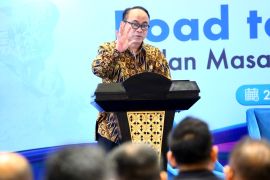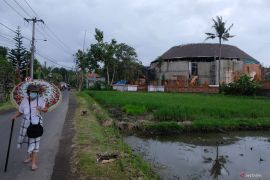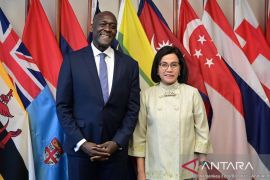Indonesia, according to the Organization of Economic Cooperation and Development (OECD) forecasts, is expected to shift from a middle-income nation to a high-income, or advanced country, by 2042.
"That is much slower than Malaysia, which is expected to make that transition by 2020, China (by 2026) and Thailand (by 2031)," the Head of the Asia Desk, OECD Development Centre, Kensuke Tanaka, told participants at a seminar last week.
The middle income trap refers to a situation in which a country that has become a middle-income nation fails to become a high-income country and experiences stagnation.
Based on international standards, a country is said to have fallen into a middle-income trap if it stays at the middle income level for 42 years.
Indonesia, Tanaka said, is only leading the Philippines, which is forecast to shift to an advanced nation by 2051, Vietnam by 2058 and India by 2059, because of being late in carrying out institutional developments and in anticipating changes.
"A number of middle-income developing countries are facing difficulties in maintaining their long-term growth and in moving away from the middle-income trap," noted Tanaka.
The OECD official said to escape the trap, developing countries must change their basic economic structures and develop their modern service sectors.
According to Indonesian Finance Minister Chatib Basri, of the 113 countries classified as middle-income nations since 1960, only 13 have been successful in developing into high-income states. The others remain caught in the middle-income trap.
He cited Brazil, India and South Africa as examples of countries that could not escape the trap. Japan, South Korea, Singapore and Ireland, on the other hand, succeeded in moving into the high-income group of nations.
"Indonesia has only been classified as a middle-income state since the early 1990s. It is, therefore, still possible to avoid the middle-income trap," he added, speaking on the sidelines of an international seminar on the "Middle Income Trap" organized by the finance ministry, the National Development Planning Board and Bank Indonesia in Denpsar, Bali, on Thursday.
He added that Indonesia has a possibility of moving into the high-income group of countries based on several factors, such as high economic potential, including abundant natural resources, and a population of up to 250 million people.
Demographically, he said Indonesia's population is dominated by the productive, working-age group, which benefits the national economy.
This demographic pattern of a high proportion of working-age individuals in the population is called the demographic dividend and enhances a countrys economic performance.
"Of course, it is not easy to jump from a middle-income group to a high-income group. Even a World Bank study has shown that the number of countries that have fallen into the middle-income trap is far greater than the number of countries that entered the high-income group," he noted.
The finance minister said that Indonesia, which had been classified as a lower middle-income country since the 1990s and now had an average per capita income of around US$5,170 a year, would never become an advanced nation if it continued to depend on its natural resources and low labor wages.
He added that technological innovation-based human resource development is desperately needed to boost Indonesias productivity and prevent the country from falling into the middle-income trap. Better human resources are required to turn Indonesia into a high-income and advanced nation.
Chatib said one of the solutions to achieving these goals is boosting productivity through the creation of technological innovations, such as was done by South Korea, which became an advanced country in 15 years.
"We have to build good and capable human resources to boost productivity. The transformation should be done so that we will not depend on raw materials and low labor wages," the minister said.
In order to improve the quality of human resources, the Indonesian government will provide a tax allowance for companies that conduct research and development (R&D) for improving human resources.
"We are considering a tax allowance for companies conducting R&D for the improvement of human resources," the minister said.
Finance Deputy Minister Bambang Brodjonegoro added that persistent income and development disparities among regions could also push Indonesia into a middle-income trap.
"Indonesia has to overcome not only the disparities in peoples incomes, but also gaps in the development of its regions," the finance deputy minister said on Friday.
He noted that while Indonesias economy over the past decades has been relatively stable, the disparities between urban and rural areas continue to increase. As a result, the underprivileged cannot enjoy the benefits of national development.
"Jakartas share in the gross domestic production (GDP) distribution has been rising. In 1990 it was only 12.1 percent, but by 2010 it had increased to 16 percent. So, 16 percent of Indonesias economic output is generated in Jakarta. In contrast, the shares of Java and Bali are declining. This is not appropriate because the regional autonomy of these regions has not created growth, causing people in the regions to migrate to Jakarta," he noted.
Bambang suggested that major cities, such as Bandung, Surabaya and other cities in Kalimantan and Sumatra, should be converted into new growth centers to ensure more evenly distributed economic development. It would also reduce the burden on Jakarta, he added.
"We should not let people migrate to Jakarta at will because it places a burden on Jakarta, which is not good for Indonesias economy," Bambang said.
In order to overcome such disparities that can trap the country in the middle-income group level, Indonesia has to undertake structural reforms to evenly distribute growth.
According to Dody Budi Waluyo, executive director of Economic Research and Monetary Policy Department of the Bank Indonesia (the central bank), Indonesia needs to carry out structural reforms to accelerate its high-value productivity program and to become an advanced country.
"The point is that Indonesia should carry out structural reforms to support even growth stability and to coordinate certain sectors, particularly the production sector," Waluyu said.
He added that Indonesia could avoid the middle-income trap because it has the largest economic potential among developing countries. With this potential, Indonesia, as a middle income nation, could overcome the constraints it is facing to shift into the group of countries with high income levels.
"Structural reforms will be a long process. Indonesia has actually done it since it was affected by the 1997 crisis. Though it has not achieved a maximal result, yet it has to continue to do it with a more coordinated policy with Bank Indonesia," Waluyo said.
(A014/INE)
EDITED BY INE
(A014/KR-BSR/A014)
Reporter: Andi Abdussalam
Editor: Jafar M Sidik
Copyright © ANTARA 2013












